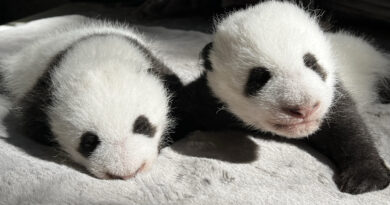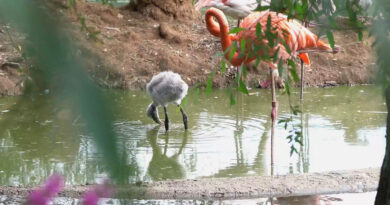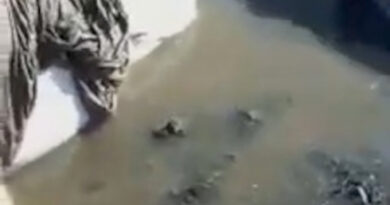Critically Endangered Somali Wild Ass Born At Swiss Zoo Was Rejected By Nervous First-Time Mum
This critically endangered Somali wild ass born at a Swiss zoo was initially rejected by its nervous, first-time mum before veterinarians and zookeepers managed to help the pair bond.
The Somali wild ass (Equus africanus somaliensis) foal, called Salia, was born at Basel zoo in Switzerland to mare Mwana and stallion Adam on the morning of 13th November 2021.
But the zoo said that the “natural mother-foal bond was broken after the birth”, with the mother at first rejecting her foal and stopping it from feeding.
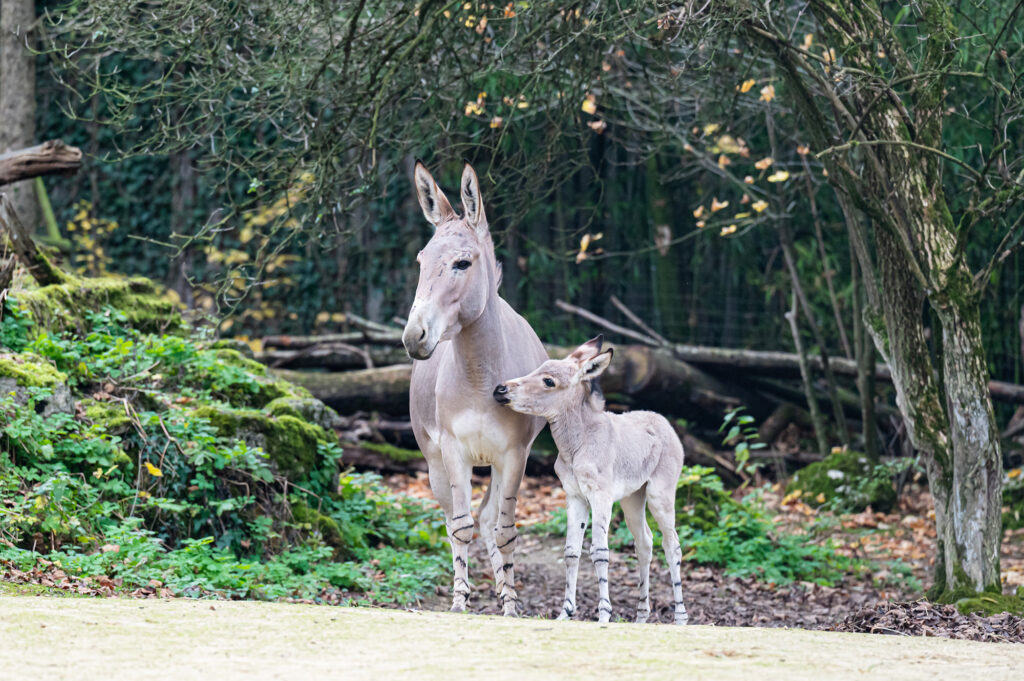
The zoo said: “The mare Mwana was visibly stressed and overwhelmed with the young animal after giving birth – which often happens with first-time mothers.
“This meant that the bond between mother and young animal could not develop properly. Mwana showed no interest in her foal and drove Salia away as soon as she wanted to drink.
“The foal’s chances of survival dropped drastically.”
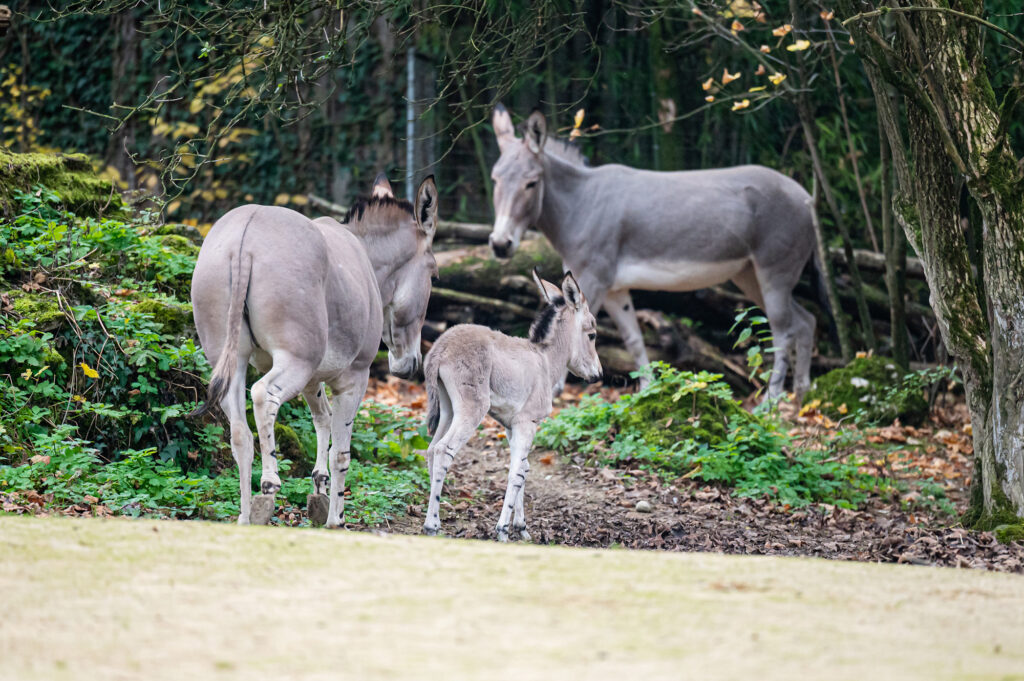
The zoo said that it consulted with two local horse specialists and on Monday, 15th November, it was decided to give the mare “a hormone injection so that she could relive the birth hormonally.”
The zoo added: “The vital bond between mother and foal was established within 30 minutes. For the first time, little Salia was allowed to drink extensively. Today the offspring is fine.
“She is playful and likes to test her long legs when she does sprints together with her mother in the outdoor area.”
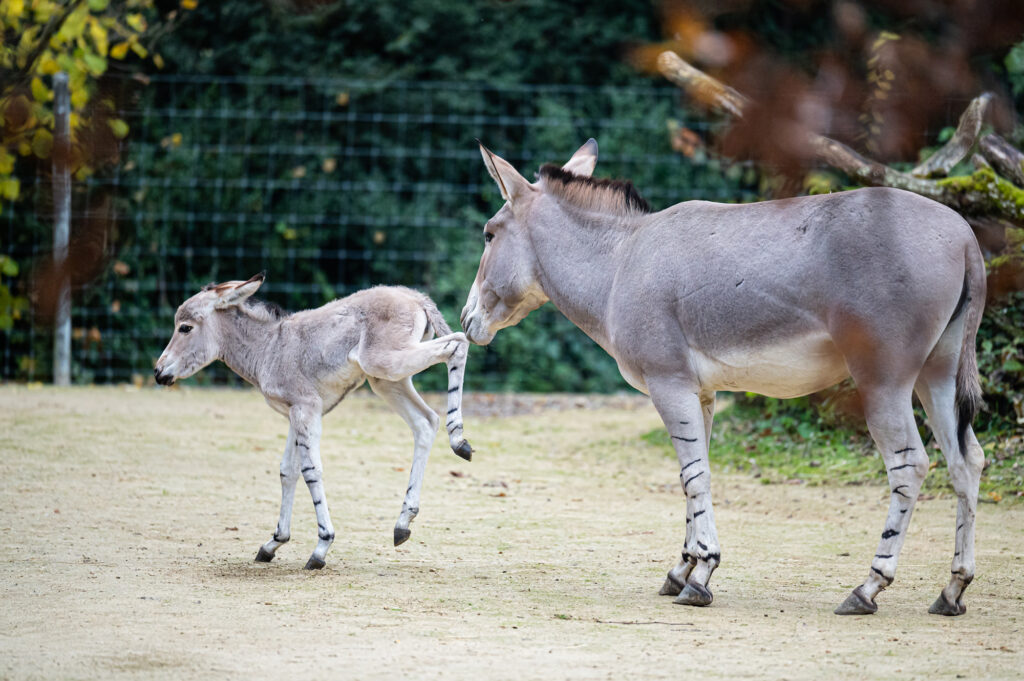
The footage shows an energetic Salia playfully discovering a new surroundings under the watchful eye of her mother Mwana.
Somali wild asses are listed as critically endangered on the International Union for Conservation of Nature’s (IUCN) Red List of Endangered Species, with fewer than 1,000 individuals estimated to remain in the wild. The zoo said that Salia is among approximately 200 wild asses living in zoos all over the world.
The zoo said: “In nature, these donkeys are threatened with extinction and are among the rarest mammals. Only a few hundred animals still live in Ethiopia, Eritrea and perhaps Somalia. Wars, competition with the livestock of the population and the meager food and water reserves have decimated their populations in recent years.
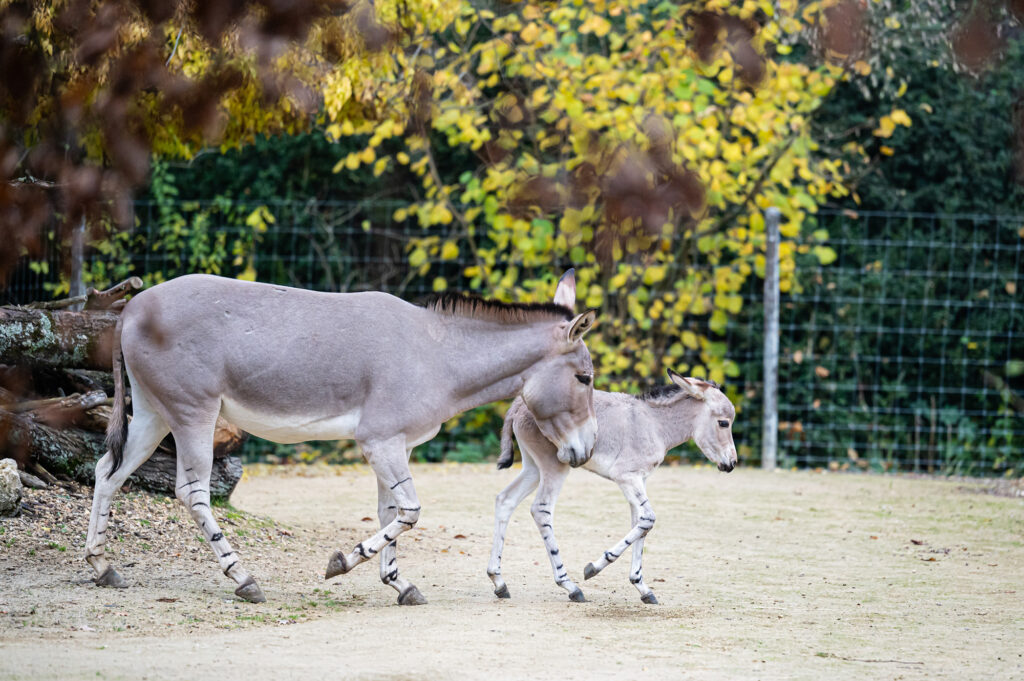
“This makes the efforts of the zoological gardens all the more important, with the European conservation breeding program, called EEP (ex situ program of the European Association of Zoos and Aquaria EAZA) to preserve this rare mammal species. Basel Zoo coordinates the EEP of the Somali wild ass and maintains the international herd book.”

